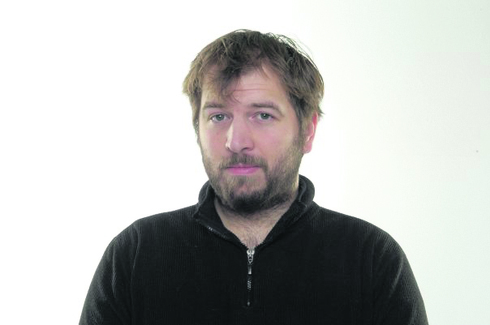 “I haven’t smoked a cigarette since 1995, but I am going to have one now,” says a woman at an election party held by the Icelandic expat community in Berlin. “I guess this means we will be staying away from Iceland for at least another four years,” another says.
“I haven’t smoked a cigarette since 1995, but I am going to have one now,” says a woman at an election party held by the Icelandic expat community in Berlin. “I guess this means we will be staying away from Iceland for at least another four years,” another says.
Icelanders living in Berlin tend to be artists and more left leaning than the majority of the country. Nevertheless, many at home had the same feeling watching the election results. “Icelanders voted for a lottery and they are fucking going to lose,” said rapper and TV personality Erpur Eyvindarson to local media.
The lottery goes back to the booming economy of the years leading up to 2008. In the autumn of that year, it all came crashing down. Everyone remembers where they were at that moment when former conservative Prime Minister Geir Haarde gave his speech and, in a country where religion is kept firmly out of politics, asked God to bless Iceland. No one seemed to know what the speech was about, least of all the PM himself, but we all knew we were in trouble.
It was a time of fear; it was a time of hope. Everyone took it for granted that this was some kind of paradigm shift, that the long reign of the conservatives and free market forces in Iceland would be over for at least a generation. Geir Haarde seemed to be on the wrong side of history when he refused to leave his post.
Mass protests, a rarity in Iceland, turned into a revolution of sorts when people gathered outside the Parliament building and banged on pots and pans for a week. Eventually, Haarde resigned and elections were held, leading to Iceland’s first ever purely left-wing government. The only thing missing was the Scorpions singing about winds of change.
But four years later, we are back to normal. And normal for Iceland means a government of the conservative Independence Party, usually flanked by the smaller Progressive Party. The latter used to be the farmers’ party, but has recently rediscovered itself as an anti-EU nationalist one. The corpulent party chair even went on a diet in which he only ate Icelandic-made products.
He also opposed paying back the Icesave debt to British and Dutch depositors, and when European courts upheld this stands, the party’s popularity surged to the extent of reaching parity with the Independence Party. This was the biggest change wrought by the recent elections, which were saw a record 15 parties in the running. So much for the revolution.
Most experts agree that the two left-wing parties have done a good job of managing the crisis, which turned out less severe than anyone dared hope. Yet their combined vote only reached 24 percent, down from 52, the greatest decline on record in a single election. So how did the government win the battle of managing the economy but lose the war for voter’s hearts?
The economic collapse was as much of an ideological shock as an economic one. Icelanders still have it pretty good by most standards, but the illusion that we could all be fantastically rich died on that October day in 2008. Something had to replace the dream. Cutting spending and raising taxes might keep the economy going, but it doesn’t give people much to believe in. While the government was busy putting out fires, it was the opposition that led the debate, from the EU that we now won’t join, to Icesave and to the new constitution that most likely will not pass.
Sensible management keeps the boat afloat, but it doesn’t keep the rowers happy unless they have a clear idea of where they are going. No one has so far offered a simpler alternative than the conservatives, with their repeated message of less regulation and lower taxes to stimulate the economy. This is where the left failed, by not offering a clear antidote to what had come before.
And so the remedy is the same elixir that caused the disease in the first place. It seems that Icelanders have decided to bet everything on one more round at the lottery, hoping that this time they will be luckier than the last.
Buy subscriptions, t-shirts and more from our shop right here!















